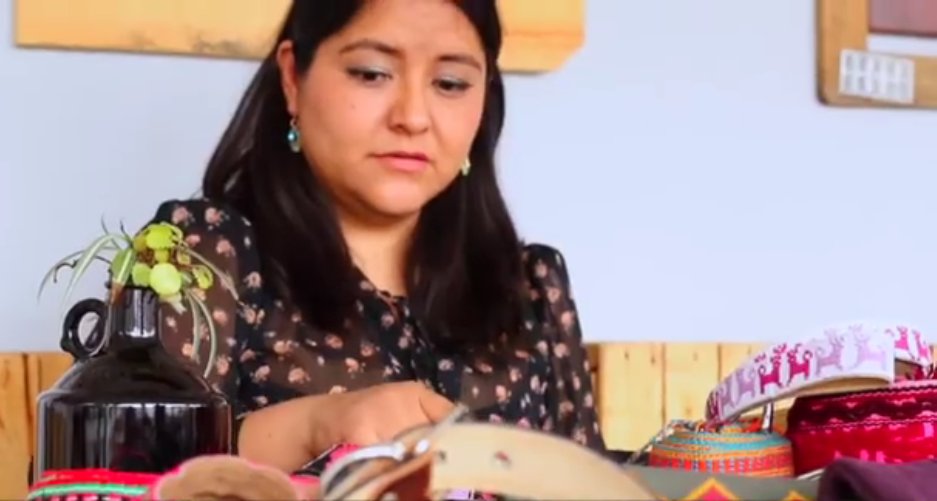SME and entrepreneurship
Mexican small business entrepreneur shows how sustainability reporting tool fits the bill
The demand for measuring the environmental impact of SMEs is growing, and so is the need for SMEs to go green. With the assessment tool SME360X and supporting initiatives like the UPS Green Exporters Program, ICC, Gist Impact and UPS aim to make sustainable business a reality for all. In this series, we share stories of SMEs, like Mexican artisan textile business Marieta Linda, as they champion the green transition in their day-to-day business.
Based in Villa Victoria, Mexico, Marieta Linda is a business dedicated to the sale and distribution of hand-embroidered textile accessories for pets and people. The company is inspired by the colours, traditions, creativity and quality of Mexican master artisans, and is dedicated to preserving these traditions through their accessories. All of their products are hand-embroidered by Mazahua women, one of the most representative indigenous groups in the State of Mexico. The business collaborates directly with the community of artisans, without intermediaries, to help distribute their products, working through fair trade.
Maria del Carmen Hernández Córdova, who founded Marieta Linda in 2019, saw the negative impacts the textile industry was having on the planet, and wanted to ensure her business was doing as much as possible to operate more sustainably. “For me, it was very important from the beginning not only to consider the development of our suppliers, but also to join in on this movement which I see as no longer optional,” Maria said. “I wanted to do as much as possible to reduce the impact we’re having on our planet, especially knowing that the textile industry is one of the most polluting industries.”
With this in mind, the Marieta Linda team looked at various options to help with evaluating her business’ environmental impacts, and was introduced to SME360X through the Mexican Entrepreneurship Institute. “For me it was incredible to be able to use it and see that we all have access to it.”

Learnings from SME360X
When Maria first started using SME360X, she was struck by the insights she was able to access via the platform. It was the business’ electricity and waste impacts that caught her attention first.
“Having used the tool, it was interesting for us to be able to discover that, although we are a micro-business and the operation is very small, we can also mitigate the environmental impact in a certain way,” Maria said. “I thought: how can we reduce these impacts and manage them? The textile industry is unfortunately one of the most polluting, and so we looked at the energy and waste in all of our products and acted to make sure the amount of fabric we were wasting was minimal.”
Informed by the insights generated from the SME360X assessment process, the Marieta Linda team turned their focus to the water treatment of its garments as well as the packaging materials, reducing their use of plastics, and altering delivery methods where possible. They also started to reassess the suppliers they were working with.
“In the case of packaging, we are looking at suppliers that have a smaller impact now and working with those who can meet the requirements that we are requesting. We have tried to reduce [our impacts] … In some cases, it is feasible for us to make the delivery ourselves so that we don’t have to use Styrofoam and other less sustainable materials that we sometimes request in parcels. And we are also looking for elements we can use that cause the least pollution.”
The educational elements of the SME360X platform also helped her build a better understanding of environmental data and impact assessment best practices. “The platform is really a great ally in terms of training… [it is] helping us to strengthen the day-to-day activities of Marieta Linda,” Maria said.
“Unfortunately, as entrepreneurs or even as micro-entrepreneurs, we often don’t know what the regulations are, and we go for the most common options. “For example, I’m in the textile industry, so I just follow the labelling rules. But little by little we are professionalising our services, and getting to know more about the environment, and in the process, we are also discovering some other needs and points of improvement that are within these rules.”

Recognising no business is an island
The tool means the Marieta Linda team now has an environmental strategy in place and targets set for 2024. Maria recognises that this process is a marathon, not a sprint, but she’s confident that they’re taking steps in the right direction. “The marathon now has a focus to it, meaning we can see where we have succeeded and maybe we can incorporate some other improvement areas into it.”
Maria notes that the tool is “great for learning”, and that it has helped her see that if entrepreneurs like her can join in the efforts to lower their emissions, then this can have a global impact.
“Don’t be afraid, sometimes we think that small things have no impact on the environment, but remember that everything adds up and makes a difference,” Maria said. “There are so many grains of sand but eventually they become granite, they become beaches. We should not just be thinking about ourselves and minimising the result of our efforts, but on the contrary, joining together to really be able to have a global impact.”
